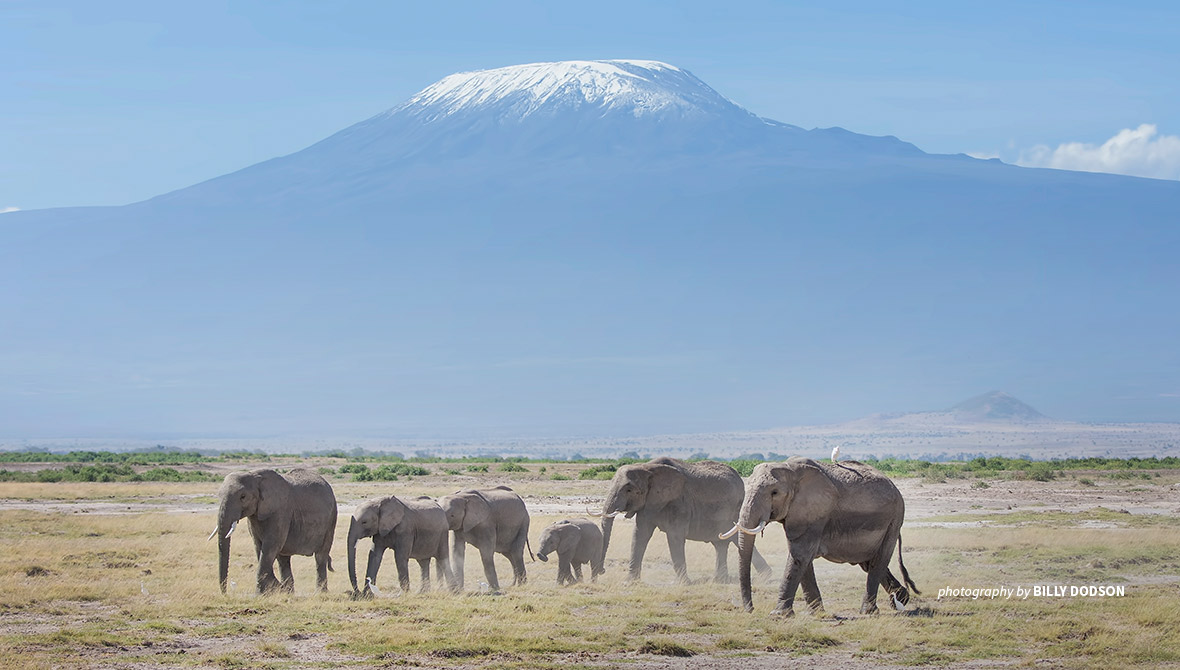Capitalizing on Africa’s cultural, historical, and socioeconomic dependence on ecosystems

This article is developed and written by the second cohort of the Charles R. Wall Young African Policy Fellows Program and the inaugural Conservation Leadership and Management Fellowship. Both programs aim to build the leadership, negotiation, and communication skills of young African professionals in the conservation sector.
Ecosystems deliver services that are usually defined by the end user, making them particular to a certain need. With multiple end users, ecosystems hold different value depending on the context of the beneficiary. As a result, managing ecosystems to derive tangible economic and social benefits can become the foundation of conflicts between end users.
Climate change threatens many parts of the world, and Africa is no exception to the adverse effects. Increased drought conditions and the loss of arable land have been linked to regional conflicts between nomadic herdsmen and farmers in Nigeria. In 2011, Ethiopia proposed the construction of a dam on a tributary of the Nile River to generate electricity. Although this development would have been beneficial for Ethiopia, Egypt had to oppose the dam because 90 percent of their water needs are supplied by the Nile River.
According to the Journal on World Affairs, “the deadliest conflicts in Sub-Saharan Africa are often linked back to struggles over resources. The United Nations Environment Programme stated that 40 percent of all intrastate conflicts are linked to resource disputes.”
Africa has extensive unexploited resources that could potentially promote sustainable economic development, yet African countries are characterized by extreme poverty, lack of resources, and unstable financial standing. These populations then naturally gravitate towards a higher dependency on ecosystems to support their livelihoods, coupled with poor resource management, unsustainable cultural or traditional extraction of resources, and pollution remain a threat to Africa’s biodiversity.
The primary contributing factor to the deterioration of Africa’s biodiversity is intractable poverty, resulting in many cascading effects on natural ecosystems. For many people in Africa, the reality of poverty supersedes the potential of conserving biodiversity. Poverty alleviation, rapid urbanization, and creating healthy, habitable, urban living spaces for so many more people is one of the defining challenges of our time.
Compounding these factors is the lack of sufficient environmental data due to challenges in collecting, compiling, and analyzing information. Coupled with the lack of advanced technological equipment, scientific research that speaks to the specific needs of conservation in Africa is inadequate, allowing for external influences to determine the conservation agendas of African countries.
Exploring nature-based solutions and opportunities
The valuation of ecosystems and their services, together with establishing trade-offs, is critical to achieving successful resource management with minimal conflict between various beneficiaries. International conservation agendas may also need to recognize and dismantle the fraught thinking of fortress conservation to promote more local stewardship and a greater sense of responsibility between the beneficiaries. Renewing this sense of ownership may help create awareness that people must work together to maintain and conserve biodiversity and natural ecosystems.
While reducing emissions and decarbonizing local economies through regional regulations and legislation is one way to safeguard ecosystems, the most vulnerable communities in Africa have the smallest carbon footprint owing to their traditional and indigenous practices. Instead, the focus in this demographic should be on financial literacy and introducing innovative financing mechanisms through pilot-scale projects that can be commercialized.
However, countries like South Africa have made headway in ensuring the preservation of wetlands and watersheds through regulations preventing harmful pollutants from entering essential waterways. Africa still has significant biological diversity, and more than 60 percent of the population lives off natural resources, representing an opportunity to develop value chains around ecosystem services for the sustainable management of natural resources.